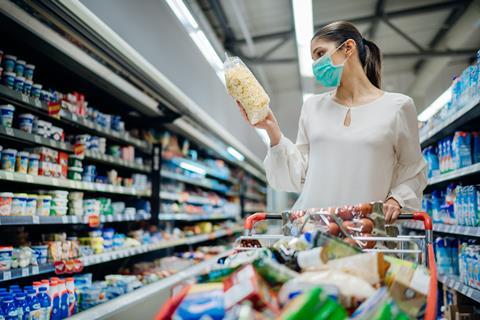The new decade started with worrying tensions between Iran and the US, which forced crude oil prices to spike to more than $70 a barrel.

At the end of the third quarter, the same commodity is trading at below $30 a barrel. A virus has engulfed the Earth, bringing thousands of deaths and decisions by governments the shadow of which may take most of the decade to absorb.
In the midst of the coronavirus crisis, Britain’s supermarkets have been at the forefront of a national effort to feed a nation in lockdown.
National heroes abound in the form of the army of distribution drivers, shelf-replenishers and check-out assistants, who have put their wellbeing at risk to keep the nation fed and stable. As a country, we owe these fine people a debt of gratitude.
Coronavirus has caused an enormous shock to the British food system. The prime minister’s decision to close down the food and beverage (F&B) industry, so restaurants and pubs, alongside the remarkable termination of the academic school year in March and advice for people to only go out as a matter of necessity, has led to a dramatic shift in the country’s calorie source.
Between 35% and 40% of the UK’s calorific intake has come from the F&B segment in recent times, a figure expected to fall to around 10% to 15% in lockdown, the latter being the institutional market of hospitals, nursing homes and prisons. Accordingly, the supermarket has become the nation’s feeding ground.
The grocery market’s performance has been interesting in this time of crisis with the dramatic demand spike. In this technological age, with many seeking the isolation remote shopping brings, the online channel displayed the first point of weakness.
Techno whizz-kid Ocado was the first to fall over as its systems switched off in the face of overload; customers were stacked in a queue of thousands and the rigidity of its business came to the fore.
Surge in demand
Supermarkets, with their greater capacity to pick orders from their aisles, proved more adaptable to the surge in online demand. But capacity constraints have also emerged, not least in the number of vans and drivers available amid fast-emptying shelves.
A rising tide lifts all boats and that has been the case with the rise in demand for groceries from Britain’s supermarkets. But not all boats have risen the same distance. So, while convenience stores and discount outlets witness stronger demand, they face challenges in their capability to receive a step change in goods deliveries and also have lesser throughput capabilities, with fewer checkouts.
So it has been superstores and hypermarkets, the latter a format for which the obituary has been written time and time again, that have come to the fore. While strained to the limits at times, these outlets, with their capability to take several full truck loads at one time, large car parks, long banks of checkouts and aisles that can take full pallets plus stock bulk goods, including the treasured loo roll, have been the nation’s saviour.

Asda supercentres, Costco boxes and Tesco Extras have, in a time of crisis, been notable locations the public have turned to when they need to do big shops. Alongside JS, M&S, Morrisons and Waitrose, these grocery operators have moved mountains of goods, literally, to feed the nation.
In week three of the coronavirus pandemic, we estimate that sales volumes rose by anything between 50% and 75%; remarkable levels of unplanned demand, bearing in mind that planning for the peak at Christmas starts in midsummer.
Will there be a legacy for grocery formats from the coronavirus crisis? New hypermarket openings are not on the agenda and we can expect that these stores will continue to be repurposed. Tesco, for example, is converting around 25,000 sq ft of space in 25 such stores to online grocery fulfilment.
One senses that some shoppers may have revisited a large store for the first time in some while and noticed the structurally narrower price differentials today versus the German discount chains, the much greater choice, particularly of proprietary brands and the convenience of a single shop with easy parking. Time will tell.
And maybe, Ocado aside, the online grocery channel could expand as elderly and vulnerable folks switch to remote shopping for the first time and liked what they experienced. Again, we shall see.
Whatever follows, the hypermarket has thankfully not died ahead of this crisis.
We should offer a round of applause for Britain’s supermarket workers, and say thanks to them, one and all!
Dr Clive Black is director at Shore Capital Markets





























No comments yet